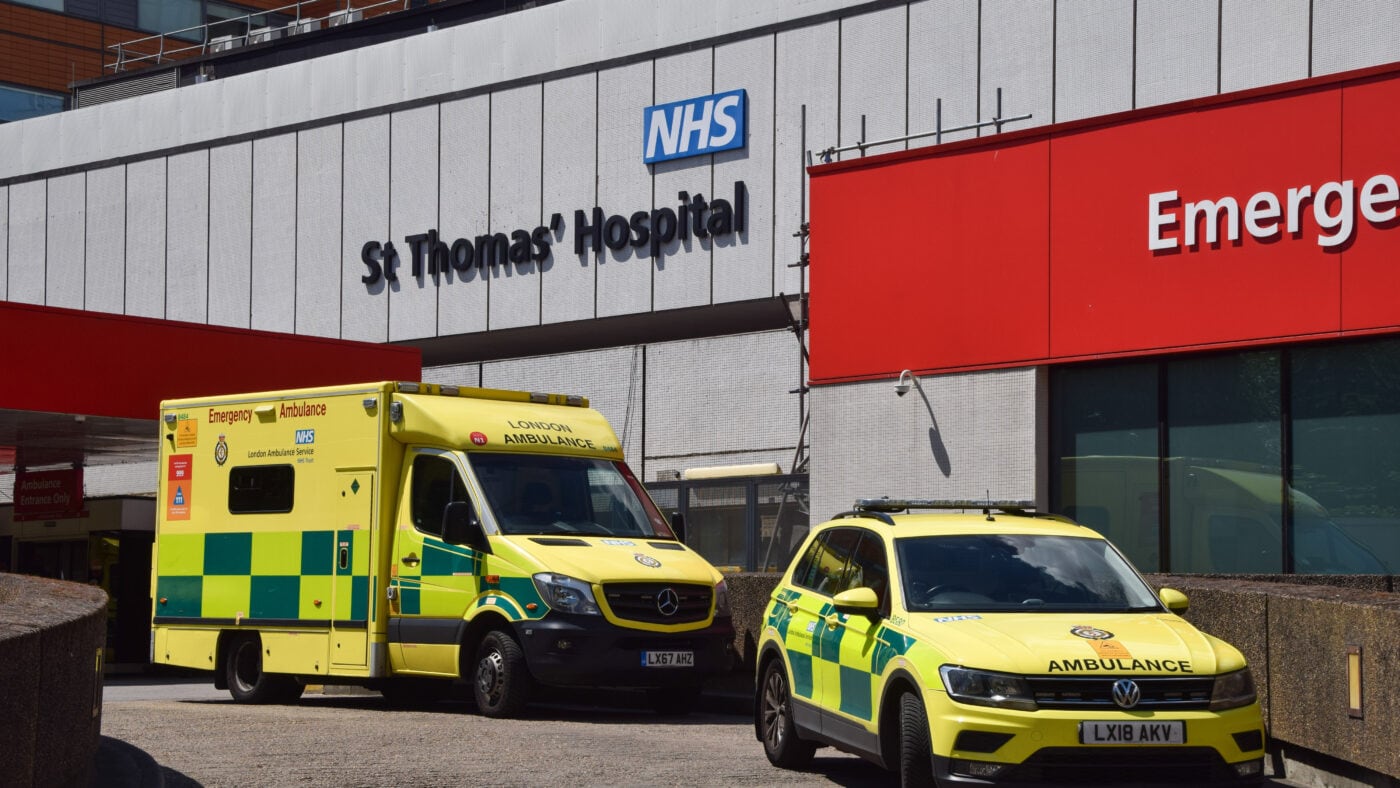Health. Although we need not echo the Psalmist’s scepticism about the value of living beyond three score and ten, there are factors. As I move steadily into my eighth decade (can I really be that old?) there is a recurrent topic in most conversations. ‘You’ve heard that Meg’s having chemo?’ or ‘You know that Fred’s got a pace-maker.’ I am on neither, thus far. Yet one is aware that every passing year intensifies the contest between medicine and mortality, and that in the end, there can only be one winner.
The personal is the political. I recently spent a couple of days in the Chelsea and Westminster with a broken rib. Effing stupid thing to do – and no laughing, please. When it happened I was stone cold sober.
This was the fourth visit to a hospital in four years: cellulitis, Covid and a broken wrist, all the first three at St Thomas’. Those were longer stays, so there was time to observe. It is widely assumed that the NHS is broken. On the basis of my experience, you could have fooled me. In those great hospitals, the odd senior consultant apart, the heat and labour of the day – and of the night – is borne by youngsters. All the ones I met were keen and spontaneously helpful. They were also diverse in a sound usage of the world: all colours and nationalities working happily together. The doctors had little time to chat, the nurses slightly more, and I was aware that everyone was under pressure. They were not obviously under stress, but you felt that if two or three key figures went sick, there would be holes in the schedule; I was also sure that the ward would somehow cope.
Disliking those cardboard piss-pots, I once got up to have a pee. Leaving the lavatory, I was able to eavesdrop while the night-shift gave way to their replacements. I was impressed by the conscientiousness. The leavers must have been tired, yet they were not going off duty until the day team had all the alerts which they needed.
I did ask a doctor at Tommy’s why his hospital was so good. ‘Glad you think it is,’ he replied. I pressed on. ‘So: why?’ Without wanting to boast, he made the point that there are several applicants for every post at Tommy’s, and I suspect that the same is true at C and W. Many are called: few are chosen. If you are appointed, you will be made to feel that you are something special and that a lot will be expected of you. Although the teaching hospitals do not receive extra funds they do receive something even more important: extra ethos, extra leadership.
That is not universal. We have all heard too many stories from persons of sound judgement about malfunctioning hospitals, including some private ones. Bits of the NHS may indeed be broken and there are political problems, including union militancy. That all seems to be a symptom of demoralisation. There also appears to be a split at the top of the new Government. Angela Rayner seems to think that the country needs more strikes. Wes Streeting, the health minister, is altogether wiser. It was he who declared that the NHS is a service, not a shrine. I wonder if any Tory minister would have dared to make such a sensible statement.
There is a further problem: the general public. Latish at night, I was once in earshot of some screaming female who was demanding to be given her f***ing drugs, now. No, she didn’t give a f*** if she kept everyone in the hospital all night: her drugs, now. I thought that she should have been taken to a police cell where she could enjoy a good helping of cold turkey – but I fear that the authorities are too humane. I suspect that a few nights in Accident and Emergency would destroy almost anyone’s idealistic illusions about human nature.
This is not only true in those troubled regions of the hospital. A nurse once did something routine for me. Naturally, as one would, I said ‘thank you’: nothing effusive, merely a thank you. He sighed: ‘First time I’ve heard that word all day’. Without canonising the NHS, one sometimes wonders whether the British public deserves all its fine youngsters.
So what is to be done? The objective is clear and one might almost summarise it as ‘levelling up’. If we could universalise best practice in the NHS, the quality of treatment would greatly improve. Equally, the scope for high-tech improvements is considerable. In labs and research hospitals all over the world, there is steady progress on an almost hourly basis. I have heard wise doctors claim that medicine could be on the verge of an intellectual revolution. (That said, it might not reach the elderly care sector, a burden which no one wants to shoulder.)
But there is one way forward: a Royal Commission on Health, which would call together medical intelligence plus individuals who are good at solving problems – such as Kate Bingham of inoculation fame. Radicalism tempered by realism but inspired by boldness: that approach ought to come naturally to us British. Let it happen.
Click here to subscribe to our daily briefing – the best pieces from CapX and across the web.
CapX depends on the generosity of its readers. If you value what we do, please consider making a donation.


